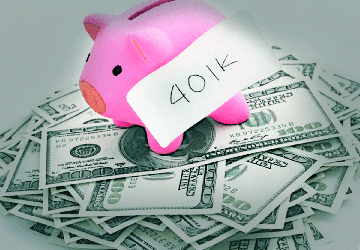Borrowers are confident they can pay off their desired home loan can take the following steps to maximize their chances of being approved for owner-occupied housing.

Your debt-to-income ratio
Maximizing your debt-to-income ratio (DTI) increases your chances of being approved for self-employment. This can be done by increasing income and reducing debt. The easiest way to improve your relationship is to buy a self-employed home loan calculator that shows you can afford a low-end loan. If the calculator thinks you can afford a $500,000 property, limit spending to less than $350,000. This gives you more financial freedom to contribute to your Solo 401(k) and increases your chances of getting approved for a self-employed mortgage.
Credibility
When you're self-employed, good credit is more critical than ever. "My advice is to check your credit first because the higher your rating, the higher the interest rate," said Linda McCoy, chief executive of the National Mortgage Brokers Association.
A good credit rating makes you a more attractive candidate to be approved and eligible for lower interest rates in any credit situation.
You have other options besides getting a better rate. If you can't get a traditional mortgage, you may have better luck with other financing programs but a better chance with good credit.
Down payment
Most mortgage programs require a down payment of at least 3% of the home's purchase price, although 20% is better. This is the case when applying for a conventional mortgage (the most popular type of home loan). Personal Mortgage Insurance (PMI) requires you to pay a surcharge of less than 20% down payment and can add significantly to your home-buying budget.
Create a self-employment record
Lenders will be more willing to take the risk on your behalf if they know how to test their independence and succeed. You should prove that you have been self-employed for at least two years and have been tax registered. You will appear more attractive if your income is stable or growing.
Your consumer debt
Paying off your mortgage is easier when you have less monthly debt under the self-employment mortgage process. You could qualify for a more significant loan as you pay off your car loan and credit cards since you'll have more cash flow.
Your company's financial strength
Signs that your business will last also make you a more desirable candidate for a lender.
You can provide the lender with any evidence that your product or service is in demand and that your business is legal, such as a registration or license, which can help them decide whether to grant you a mortgage.
Due to the difficult economic beginning of 2020, many businesses have had to close, which can be challenging. However, there are remedies. According to McCoy, "certain types of businesses have received some COVID exemptions for the first two years."

Documentation needs to be checked
All the necessary self-employment mortgage documents must be ready before applying for a mortgage.
If you are ready and willing to provide sufficient proof of income, you are more likely to be approved for a self-employed mortgage and get a cheaper rate. Additionally, your lender may require some or all of the following:
lTwo-year personal tax return
lProfit and loss statement for the year
lBusiness bank statement two months ago
lClient's 1099 form for the last two years
lTwo years of corporate tax returns, e.g., B. Any Schedule K-1, Schedule C, and other documents you file.
In some cases, your lender may also require additional documentation from you, such as:
lBusiness License
lCommercial Insurance
lA statement signed by your Certified Public Accountant (CPA)
lCommercial purchase invoice
lIndependent Contractor Agreement
Mortgage options for the self-employed
Mortgages are not a one-size-fits-all solution; some people may be more lenient than others regarding home loan requirements for self-employment. Do your research to find out what loan programs are available to you. You may be more successful if you choose something other than traditional credit. They are usually the hardest to qualify.
A government-backed loan may be a wise option. Federal Housing Administration (FHA) loans are more forgiving with lousy credit. While you must pay for mortgage insurance, down payment requirements are low. The FHA protects your mortgage and makes lenders more likely to cover your risk.
Statement loans, or alternative document loans, allow borrowers to submit a loan application without providing the usual proof of income, such as W-2 certificates and tax returns. Instead, lenders will assess your business income based on 12 to 24 months of your bank statements.
If you served in the Armed Forces, you may be eligible for a VA loan because it also has insurance. Check out USDA loans if you're considering buying a home in a rural area. You may also want to contact your state's Department of Finance or HUD office to see if they have any assistance programs available.
The bottom line
If you are interested in buying a home as a self-employed borrower, getting in touch with a reputable mortgage broker early on is beneficial. Find someone who specializes in helping self-employed homeowners. Even years before you apply for a mortgage, they can help you plan what to do.









